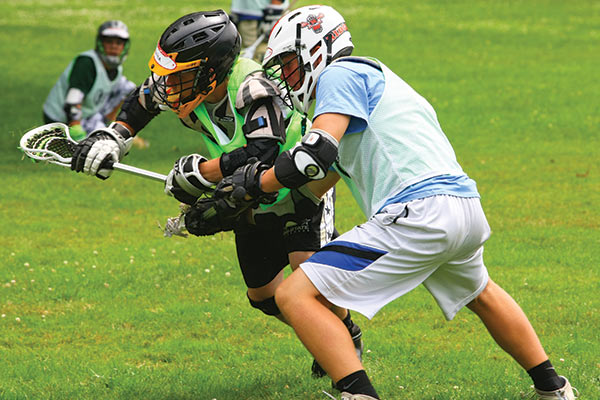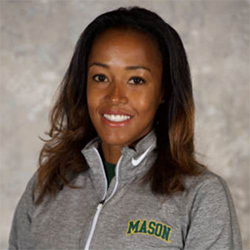Sports Camps: A Few Things about Physical Fitness and Kids

Many parents and guardians worry that their kids may develop unhealthy habits in today’s world. Given the rise of social media and online gaming, children are in danger of falling into a sedentary lifestyle. The large amount of fast food and junk food that is available today also increases the risk of obesity, diabetes, and other complications related to poor dieting and a lack of exercise. Helping children gain a better level of physical fitness is imperative to any responsible parent or guardian.
While good health is important for individuals of all ages, kids face several hindrances in the pursuit of better health. Since they lack the ability to acquire gym memberships, do their own grocery shopping, or order fitness-related products, children need assistance in order to help them achieve a better level of health. While there are some traditional methods which are used, new and innovative ways of helping children improve their level of physical fitness have become more popular in recent years.
Sports Camps
Many children enroll in sports at public schools. Sports teams provide children with a way to stay fit while also helping them become more sociable, coachable, and responsible. However, school sports teams aren’t for everyone. Some schools may not offer a certain sport that a child is interested in, or a child may simply feel uncomfortable participating on a school sports team.
For those kids who dislike the idea of participating on a school sports team but still have an interest in sports, sports camps are great choices. Sports camps are organizations dedicated to providing kids with high-quality instruction and mentorship in various sports. Many websites offer detailed databases of various sports camps in order to make choosing and in enrolling in a sports camp very easy.
Sports Camps vs. Sports Teams
While school sports teams are popular among kids, they have several disadvantages. Some kids may not feel comfortable performing on a sports team due to a lack of skill when compared to other members on a team. The hierarchy that is often present in public schools can make a child apprehensive about trying their hand at a sport.
In addition to this, school sports teams are often supplementary to academics. These teams are considered secondary to the school’s main function of providing education to students. While schools provide a number of extracurricular activities to students including ones that are athletic in nature, the level of quality of any school sports team is dependent on a number of factors including funding and administrative decisions. Sports camps, on the other hand, are an alternative model more geared toward individual and concentrated instruction.
Sports camps are designed to focus primarily on training and mentoring athletes of all skill levels. Given that sports camps are often relatively short in nature, there is less of a hierarchy and less pressure to perform up to the level of one’s peers. Sports camps also feature a large staff of experienced coaches to provide individual instruction to every attendee.
Exercise Without Tedium
A healthy lifestyle Is, admittedly, less appealing in certain ways to other lifestyles. At least in the short term, many people find it more enjoyable to participate in recreational activities as opposed to exercise. Even children, who are often very energetic, can become bored with the idea of traditional exercise. Sports camps provide a way for children to stay fit while keeping them engaged in a fun and involved environment.
Sports provide a way for children to focus their energy on a goal and improve their level of physical fitness. Sports camps allow this to happen in a safe environment where trained professionals are focused on helping kids gain skills at the given sport the camp is based on. Parents and guardians are often encouraged to attend and record the sessions their children participate in to ensure that their child is receiving safe and quality training.
The Development of Good Habits
In most cases, an unhealthy lifestyle is the result of a number of bad habits repeated in perpetuity. Just as no one becomes unhealthy by an occasional short stint of bad health decisions amidst an otherwise healthy life, “diets” don’t help individuals become healthy. Instead, changing one’s lifestyle and developing good habits is a good way to achieve a higher level of physical fitness. It is much more beneficial to develop these good habits at a younger age.
While kids do have a disadvantage in terms of the amount of resources they can access to improve their health, they do have an advantage due to the fact that they have more time to develop good habits. Adults who try to get into shape later in life may find it difficult to break free from poor eating habits and sedentary lifestyles. Kids, however, can find it much easier to pick up good habits quickly.
Sports camps can be a good place to learn a number of beneficial fitness tips, including:
- Healthy recipes
- Stretching Techniques
- Warm-up exercises
- Cool-down exercises
- Basic physiology
Becoming more knowledgeable about better fitness as a whole is an extremely beneficial aspect of a sports camp. Immersing oneself into an environment dedicated to high-quality sports instruction can allow a kid to develop good habits and to improve their level of fitness from an early age. This can lead to an improved level of fitness throughout a child’s life. This is one of the best gifts a parent or guardian can give their child.
An Improved Relationship
Parents and guardians try to give their children support, educational opportunities, material possessions, and a number of other benefits and luxuries to help them do better in life. However one of the best things a parent or guardian can do for their child is to help them become a healthier person. This can lead to a longer, happier, and more confident life for the child.
This is something that can improve the relationship a parent or guardian has with their child in the long term. A better relationship between the two can be beneficial for both, and the resulting trust and gratitude that develops can help a parent or guardian grow closer to their child.



